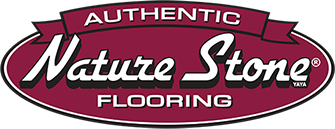5 Big Disadvantages of Traditional Epoxy Flooring
Epoxy coatings have long been a popular option when it comes to topping concrete and cement floors, and it’s understandable why. Done right, by a company that has pioneered their own formula, they can improve the look and feel of areas such as basements and garages, making them safer and more beautiful.
However, if you own a home or commercial property and are thinking of coating your floors with a traditional epoxy, or, even more notably, a trendy polyaspartic epoxy treatment, there are some disadvantages you need to consider – disadvantages that are often glossed over by pushy salesmen and misleading webpages. Here are a few to keep in mind.
- Epoxy Floors can be Slippery
If you do projects in your garage or basement, or if those areas are prone to moisture – and they probably are – be careful. Traditional and polyaspartic epoxy can get slippery. This makes them dangerous both at home and if you are running a business like a restaurant or a manufacturing plant. Epoxy-coated floors require that you take extra measures, such as anti-slip floor treatments, textured surfaces, or grits to reduce the risk of slips and falls, all of which means undisclosed, hidden costs your salesman didn’t tell you about. (Look below for a no-slip alternative!)
- Toxic Fumes
Epoxies can emit harmful fumes during installation and curing. These fumes can cause respiratory and skin irritation, nausea, and headaches, making it difficult to work in the area without proper ventilation or protective gear. It is important to note that low-VOC options are available and should be sought where possible. In either case, remember that you will need to stay out of the room – or maybe even out of the house – during installation, and perhaps for several days after.
- Cracks and Chips
Polyaspartic epoxy coatings are not as flexible as the surface it’s applied to, nor is it porous, which means that it can crack or chip if the substrate underneath shifts or expands. This can be caused by many factors like severe temperatures changes, heavy traffic, moisture and drainage issues, foundational shifting, or structural overloads. Repairing a damaged epoxy floor is costly and will require the services of an experienced professional, which means it’s yet another hidden cost that probably wasn’t explained to you. (Look below for a porous solution that helps avoid drainage and moisture issues!)
- UV Damage
These floors often look nice in catalogs, but they are prone to discoloration and fading when exposed to UV light (sunlight), something that is inevitable in a garage or outdoor environment. This is because the UV rays penetrate through the coat and break down the polymers, which can lead to a change in color and texture. Over time, that attractive floor will look ugly. To avoid this, you’ll need to have the floor regularly coated with a UV-resistant sealant. That’s another expense!
- Time-Consuming installation
Prepping your home or business for a new floor installation can be time-consuming even in the best of circumstances. When it comes to a product as new and difficult to work with as polyaspartic epoxy, there is even more prep involved. The average installation can take days, and before the epoxy is even applied, the room must be fully cleaned, tested, and exhaustively prepped to ensure that the material adheres correctly. There are also strict guidelines and drying times that must be observed during and after the installation, further extending the process. All of this means you have to be patient.
These disadvantages are why many homeowners and business owners are ignoring the pushy sales tactics and are instead seeking other, superior alternatives. So what’s the solution?
Nature Stone®. The surface pitting and deterioration that results when paint epoxy is exposed to moisture? It’s a thing of the past with Nature Stone®. Slippery floors? Also a thing of the past, thanks to Nature Stone’s unique, patent-pending porous technology that helps moisture drain away.
Nature Stone® even comes with an unrivaled unconditional warranty. No strings. No hidden costs. And this warranty is fully transferrable and is good for 10 years for both residential and commercial jobs.
So your alternative is clear: Get Nature Stone®!


